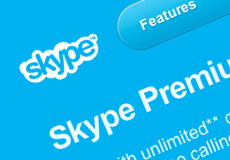By
Rob ScottAugust 27, 2013
The Airbnb travel accommodations website teamed with ad agency Mullen San Francisco to launch a new experiment in Vine marketing this past week. The “Hollywood & Vines” campaign will result in a short film composed of six-second Vine videos submitted by consumers. Shooting days ran August 22-25, with assigned shots posted hourly. “If your Vine is selected it will be featured on the Sundance Channel and you’ll receive a $100 Airbnb coupon,” explains the campaign’s site. Continue reading Vine Marketing: Airbnb Launches Video Crowdsourcing Campaign
By
Rob ScottAugust 23, 2013
In an effort to promote its own Internet-of-Things devices, startup SmartThings is launching an online marketplace that offers starter kits and an array of devices and solution sets that help manage the home. SmartThings first launched its products via Kickstarter in September, including a hub and variety of sensors to track movement and manage devices, providing users with home automation solutions controlled largely by smartphones. Continue reading SmartThings Launches Online Market for Internet of Things
Companies such as General Electric, Ford and Mattel are increasingly turning to 3D printing, or additive manufacturing, in order to help deliver products to customers more quickly. Unlike traditional manufacturing techniques, that typically involve cutting or drilling from molds, 3D printing enables a more efficient means of modeling an object on a computer and then printing it with plastic, metal or composite materials. Continue reading Industries Find 3D Printing Technology Fast and Efficient
Video tech company Unruly Media has released Vine metrics to coincide with the celebration of the mobile video app’s first 100 days. According to the research, five Vine videos are shared on Twitter every second and branded Vines are now four times more likely to be shared by users than branded online videos. Weekends are by far the most popular time to share Vines. To compile its report, Unruly Media collected data from more than 10 million Vines over a one-month period. Continue reading Twitter: Branded Vines Shared More Than Branded Videos
By
emeadowsApril 12, 2013
On Wednesday, General Electric announced a partnership with Quirky, a New York-based startup that acts as a kind of social network for inventors. This makes sense for GE as it continues making its push into the so-called Internet of Things, which encompasses various types of devices connected to the Internet – all of which combine to create a constant stream of data regarding how they operate together. Continue reading General Electric Licenses Patents to Quirky Community
By
Rob ScottFebruary 13, 2013
Comcast is acquiring General Electric’s 49 percent stake in NBCUniversal. Teamed with Comcast’s initial 51 percent acquisition two years ago, the new $16.7 billion deal will result in the cable operator’s full ownership of the film and television giant. Comcast is taking a bold gamble, particularly when considering the uncertain direction of the entertainment industry in the midst of digital change and the growing success of services from the likes of Netflix and Amazon. Continue reading Comcast to Buy Rest of NBCUniversal from GE in Early Sale



